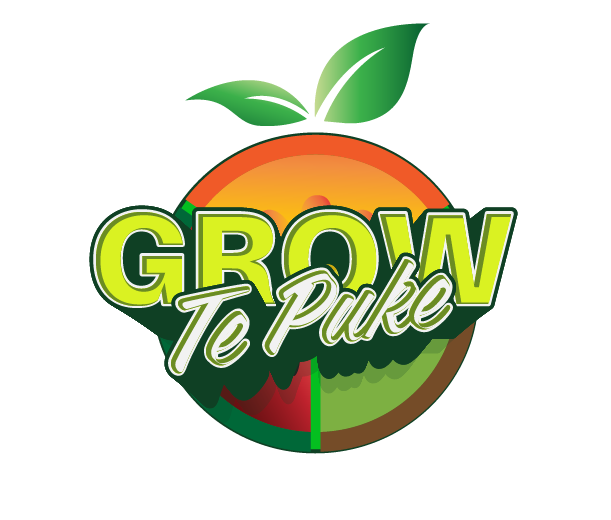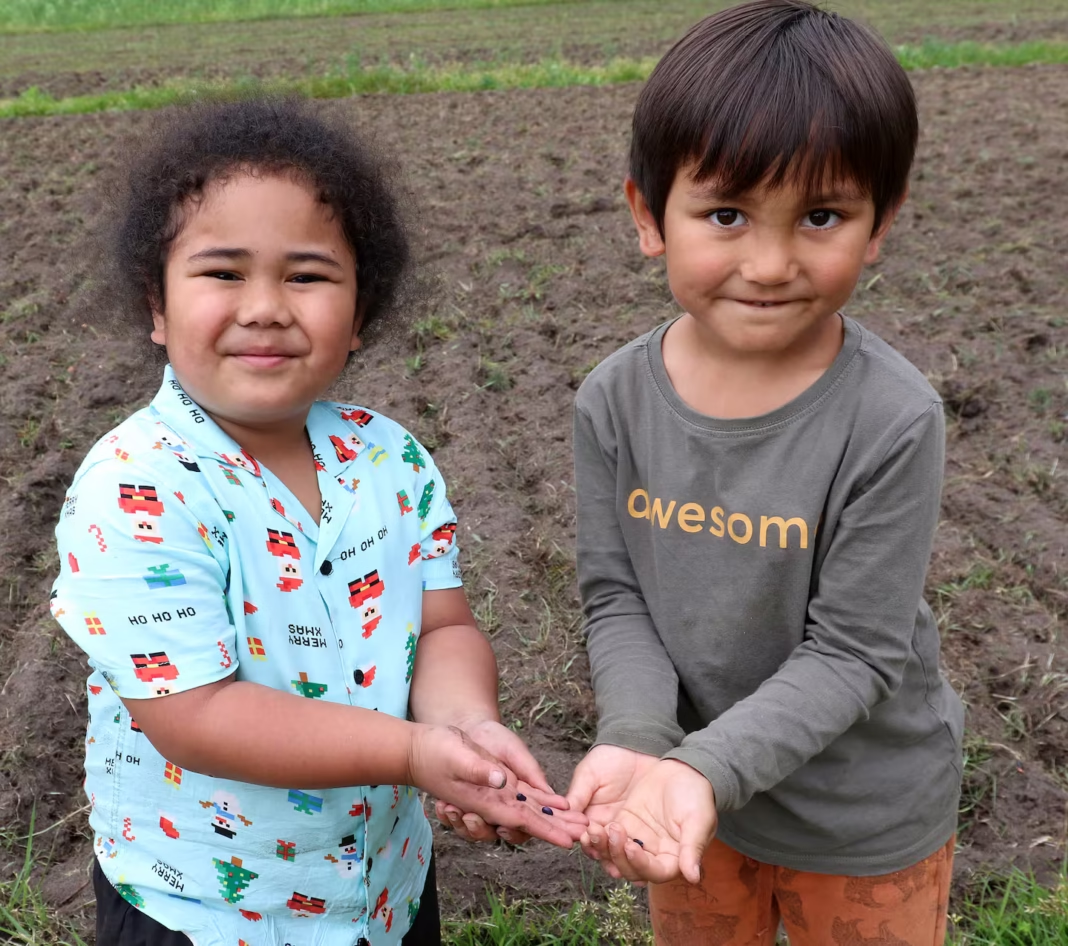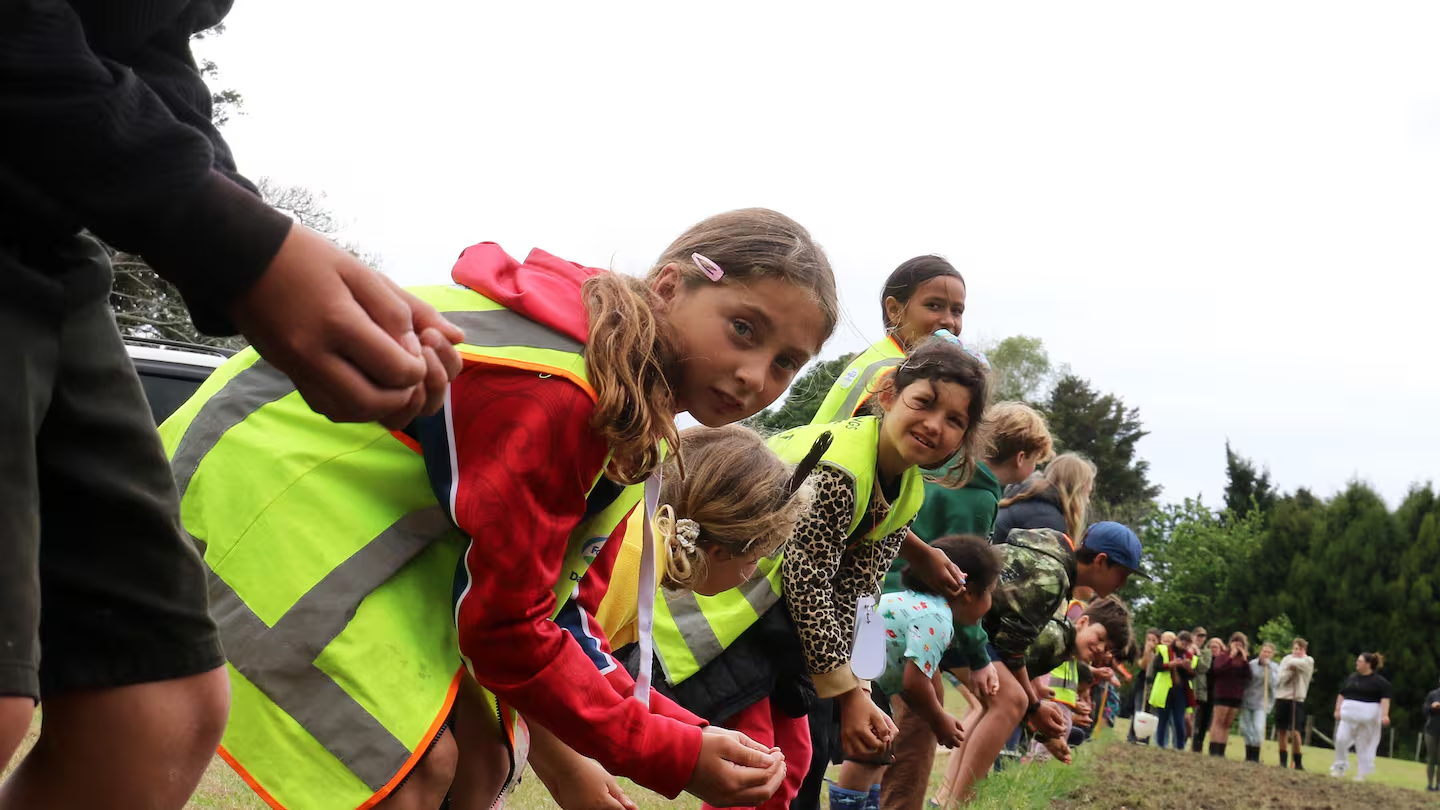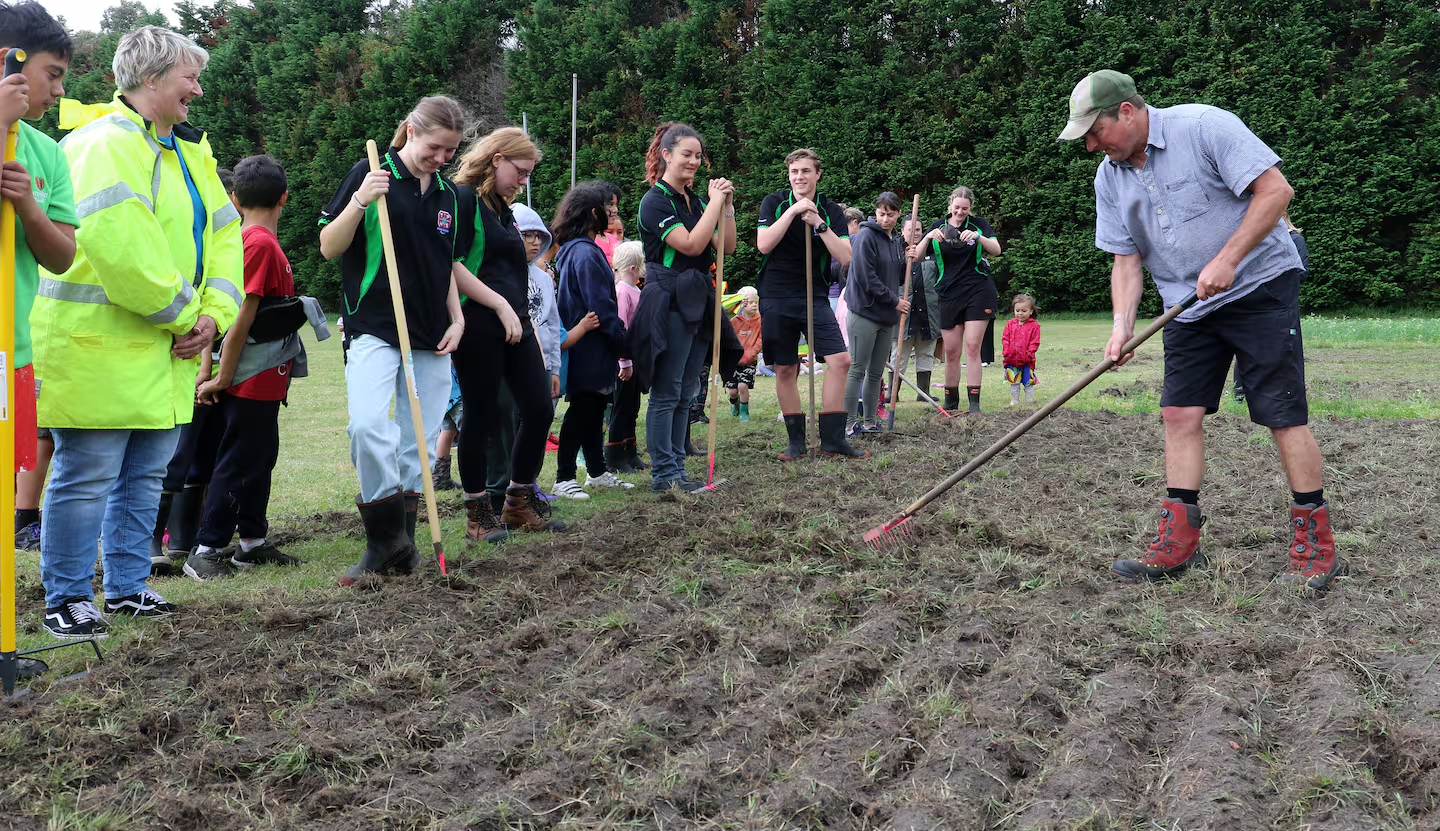In the back field of Pukehina School, a unique experiment is taking root. It may look like “chaos,” but this innovative garden is a carefully planned trial with the potential to improve food resilience for the wider Te Puke community.
Last month, students from Pukehina and Maketū schools, along with home-schooled students, gathered for a special planting day. This initiative, guided by Marty Robinson of the Te Puke Kai resilience group, aims to tackle a key challenge identified by community groups like COLAB: the high cost of fresh produce.
The Method in the Madness: “Chaos Gardening”
The solution? Chaos gardening, or polyculture. This method allows for large areas to be prepared and planted quickly and affordably. Using local farmers’ machinery, a 1200-square-metre garden was created in three distinct beds. Seeds were then sown and left to grow wherever they landed.
“The plants are allowed to grow wherever the seeds land and chaos ensues as differing plants develop and are harvested,” explains Marty.
This isn’t a new idea. It’s based on the ancient practice of companion planting, like the “three sisters” method where corn, beans, and pumpkin are grown together to support each other. In a chaos garden, different plants work together to improve soil health, suppress weeds, and produce a bountiful harvest.
A Trial with a Purpose
The Pukehina trial is broken into three beds, each with a different focus:
- Leafy Greens: A mix of mesclun, spinach, lettuce, peas, and cabbage.
- Root Vegetables: Including carrots, onions, beetroot, radishes, and celery.
- A Mix of Everything: Herbs, flowers, and corn to create a diverse ecosystem.
If this trial is successful, the vision is to use other unproductive land areas around the rohe (region) to create large gardens that supply the community with seasonal fresh produce for years to come.
Nurturing a Sustainable Future
This garden is a natural fit for Pukehina School, which is in its third year of the Garden to Table programme. Principal Indra highlights how the program aligns with the school’s focus on sustainability, learning outside the classroom, and connecting with Papatuanuku (Mother Earth).
The school has integrated this program into its Marau-ā-kura (localised curriculum), teaching children to grow, harvest, prepare, and share food. This hands-on learning empowers them with skills for a self-sufficient and sustainable future.
The partnership between Te Puke Kai resilience group and Pukehina School is a powerful example of how community collaboration and innovative thinking can grow a solution to real-world problems, one seed at a time.




